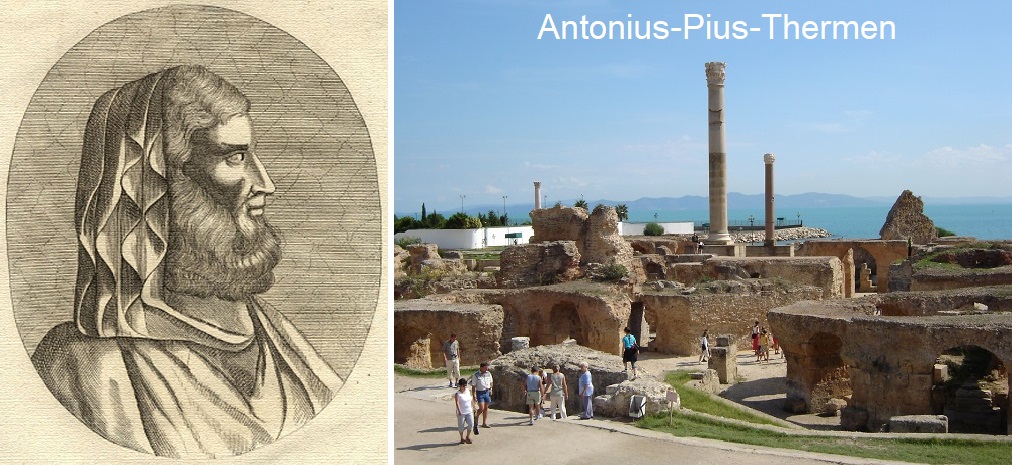Carthaginian is considered the "oldest wine author in the world". Little is known about his dates and life, he probably lived in the second century BC. He wrote the 28-volume work "De re rustica" (of rural affairs) in Punic about agriculture, including viticulture. In it, he described the knowledge of the Phoenicians, who founded Carthage in the 9th century BC and established viticulture here. Little is known about the life of Mago. In his time there were flourishing vineyards around Carthage, but viticulture was not of great importance. It can be assumed that Mago wrote his findings on the basis of his own observations, for he deals specifically with North African conditions. He recommends planting vines on northern slopes, describes some grape varieties and suggests the unification of smaller vineyards into larger units.

When Carthage was completely destroyed in the Third Punic War in 146 BC, the Romans rescued Mago's works from the library. They were translated into Latin on the basis of a senate resolution in 126 BC and also into Greek by Cassius Dionysius in 88 BC. It can be concluded from this that the Romans attached great importance to the work and probably wanted to use it as a basis for Roman settlement and agricultural cultivation of North Africa. However, both the original and both translations were later completely lost. Mago's writings have survived in part because large passages were quoted by other authors. These were mainly the Romans Varro (116-27 BC) and Columella (1st century). The latter called Mago the "father of rural concerns". Mago's recommendations strongly influenced Roman viticulture. Some of the contents of his works are also contained in the famous agricultural compendium Geoponika from the 10th century. See also Ancient Wines, Ancient Grape Varieties and Drinking Culture.
Carthage: By BishkekRocks, Public domain, Link
Voices of our members

Serious sources on the internet are rare - and Wine lexicon from wein.plus is one such source. When researching for my articles, I regularly consult the wein.plus encyclopaedia. There I get reliable and detailed information.
Thomas Götz
Weinberater, Weinblogger und Journalist; Schwendi